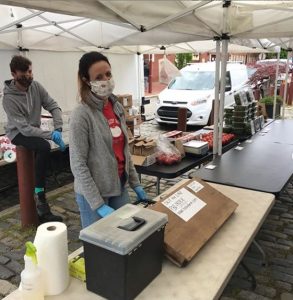We continue to get questions about what signage is required for an audit or the Produce Safety Rule and where to get them. Not all the signs listed below are, but handwashing and visitor signs need to be posted in English and in the language of the workers. For example, if you have a mixture of Spanish and Creole speakers, you will need signs in three languages.
The signs and posters listed below are available at the following locations – Rutgers Cooperative Extension office in Cumberland County (291 Morton Ave., Millville Tel. 856-451-2800 x 1) or Rutgers Cooperative Extension office in Mercer County (1440 Parkside Ave., Ewing, NJ 08638 Tel. 609-989-6830). If you would like any of the signs, please call the office to schedule a pick-up.
Please Wash Your Hands Often! (8.5x11inches) – English, Spanish, Creole, Chinese, Greek, Polish, Portuguese, Russian and Vietnamese.
Please Put Used Toilet Paper in the Toilet (8.5×11 inches) – English and Spanish
Please Use Toilets Provided in the Field (8.5×11 inches) – English and Spanish
When Must Hands Be Washed (8.5×11 and 21.5×27.5 inches) – English and Spanish
Health and Safety Notice for Visitors (21.5×27.5 inches) – English and Spanish
Cleaning and Sanitizing Food Contact Surfaces (21.5×27.5 inches) – English and Spanish
Service Animals Covered by the ADA are Welcome Here (8.5×11 and 21.5×27.5 inches) – English and Spanish
Many of these signs can also be downloaded from our revised website onfarmfoodsafety.rutgers.edu starting July 1st.

